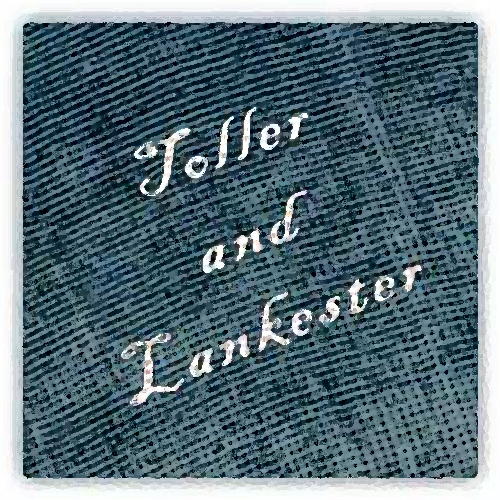Toller & Lankester Ltd.
William N Toller became redundant when his employers, Richard Harris & Co went into liquidation in 1886.

However, his fortunes soon improved when in 1887 he formed a partnership with Mr E Allen Lankester, the twenty two year old son of Leicester Lord Mayor Dr Henry Lankester. Edward was the only one of Dr Lankester's six sons who was not a qualified Doctor.
With £450 capital they commenced business in a large four storey rented property in Jarrom Street, using second hand machinery obtained from Richard Harris. The factory had its own steam power to run the machinery and recycled the waste steam to heat the building. They undertook all operations, from winding yarn from the spinners through all subsequent operations up to final despatch to the customers. In their early years the main products were men's and boy's jerseys, socks and fully-fashioned lambswool shirts and pants. Additional machinery, bought in 1908, increased the product range to include fleecy shirts and pants. Progress was steady but profits accelerated towards the end of the First World War.
In common with most of the Leicester trade, and British industry in general, the firm suffered enormous losses in the recession of 1920. It was so bad that they were forced to compensate the yarn suppliers for yarn that was no longer needed, but had been ordered before the price collapsed. The resulting loss of over £30,000 nearly closed them down.
The firm also suffered two disastrous fires. Records show that the first fire in 1919 closed the factory for nine months. The cost to the insurers was half the insured value. The second spectacular fire, in 1924, started in a brushing machine in the basement. It spread rapidly to the top floor, sending the heavy and very valuable equipment crashing down through the building. Temporary accommodation was rented under the stands at the Tigers rugby ground. It was later described by an employee as being very cold and when the Tigers scored, clouds of dust and dirt fell from the ceiling as the excited fans stamped their feet.
The new modern factory was set up in Grace Road. A first floor extension was built in 1953 and a large sign bearing the firms trademark Lifeguard, was added. The firm, by then a limited company, had survived the recession of the 1930s, but the Grace Road factory was taken over by the Admiralty and the business was 'consolidated' into the Benjamin Russell factory for the duration of the Second World War. After the war the firm was successfully separated from Russells and re-established as a specialist children's knitwear manufacturer at Grace Road.
Following the war there was a shortage of yarn and workers in Leicester, making it necessary to restrict the supply of Lifeguard goods to the wholesalers who supplied the thousands of independent retailers still trading at that time.
In the 1960s, Toller & Lankester successfully negotiated the change from supplying the independent trade to supplying M&S and the rapidly developing chain stores, but an inspired change in tactics made them highly dedicated suppliers to Mothercare, to whom they eventually supplied over a million garments per year.
These were good years for the firm, but by the early 1990s it was clear to Brian Lodge, the chairman and grandson of E A Lankester, that in the face of Far East competition, manufacturing in the UK was far too expensive for long term success and he had no hesitation in recommending to the shareholders an offer for the firm from Brian DeZille of the then successful 'Sweater Shop'.